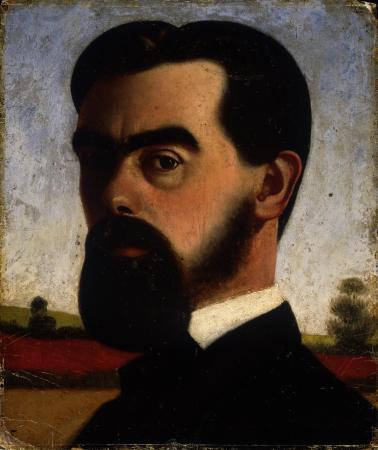“La vie est l’art de tirer des conclusions des prémisses insuffisantes.”
Life is the art of drawing sufficient conclusions from insufficient premises.
en
Samuel Butler était un écrivain britannique principalement connu pour sa satire Erewhon, ou De l’autre côté des montagnes. Wikipedia

“La vie est l’art de tirer des conclusions des prémisses insuffisantes.”
Life is the art of drawing sufficient conclusions from insufficient premises.
en
Life is like music, it must be composed by ear, feeling and instinct, not by rule. Nevertheless one had better know the rules, for they sometimes guide in doubtful cases, though not often
en
“On peut tous faire des grandes choses, si on sait qu’est-ce qu’une grande chose.”
All men can do great things, if they know what great things are.
en
The advantage of doing one’s praising for oneself is that one can lay it on so thick and exactly in the right places.
en
It is far safer to know too little than too much. People will condemn the one, though they will resent being called upon to exert themselves to follow the other.
en
St Anthony tempted the devils quite as much as they tempted him; for his peculiar sanctity was a greater temptation to tempt him than they could stand. Strictly speaking, it was the devils who were the more to be pitied, for they were led up by St Anthony to be tempted and fell, whereas St Anthony did not fall.
en
Life is not so much a riddle to be read as much as a Gordian knot that will get cut sooner or later.
en
Life is a superstition. But superstitions are not without their value. The snail's shell is a superstition, slugs have no shells and thrive just as well. But a snail without a shell would not be a slug unless it had also the slug's indifference to a shell.
en
“C'est facile d'avoir des avis plus justes quand tout le monde les a déjà.”
It's easy to have juster views when everybody else has them.
en
It has, I believe, been often remarked, that a hen is only an egg's way of making another egg.
en
Seeing
The Note-Books of Samuel Butler (1912), Part IX - A Painter's Views on Painting
Samuel Butler's Notebooks http://books.google.com/books?id=cjk3AAAAIAAJ&q=%22One+of+the+first+businesses+of+a+sensible+man+is+to+know+when+he+is+beaten+and+to+leave+off+fighting+at+once%22&pg=PA186#v=onepage (1951)
The World, ii
The Note-Books of Samuel Butler (1912), Part I - Lord, What is Man?
Source: Erewhon (1872), Ch. 26
A Man's Style
The Note-Books of Samuel Butler (1912), Part VII - On the Making of Music, Pictures, and Books
The Roman Empire
The Note-Books of Samuel Butler (1912), Part XIII - Unprofessional Sermons
Literary Power
The Note-Books of Samuel Butler (1912), Part VII - On the Making of Music, Pictures, and Books
Ramblings In Cheapside (1890)
Source: Erewhon (1872), Ch. 22
“A definition is the enclosing a wilderness of idea within a wall of words.”
Definitions, iii
The Note-Books of Samuel Butler (1912), Part XIV - Higgledy-Piggledy
Philosophy
The Note-Books of Samuel Butler (1912), Part XX - First Principles
Sparks
The Note-Books of Samuel Butler (1912), Part XIV - Higgledy-Piggledy
Incoherency of New Ideas
The Note-Books of Samuel Butler (1912), Part XIV - Higgledy-Piggledy
The Art of Propagating Opinion
The Note-Books of Samuel Butler (1912), Part X - The Position of a HomoUnius Libri
Criticism
The Note-Books of Samuel Butler (1912), Part VII - On the Making of Music, Pictures, and Books
Religion
The Note-Books of Samuel Butler (1912), Part II - Elementary Morality
Ancient Work
Source: The Note-Books of Samuel Butler (1912), Part XII - The Enfant Terrible of Literature
Organic and Inorganic
Source: The Note-Books of Samuel Butler (1912), Part VI - Mind and Matter